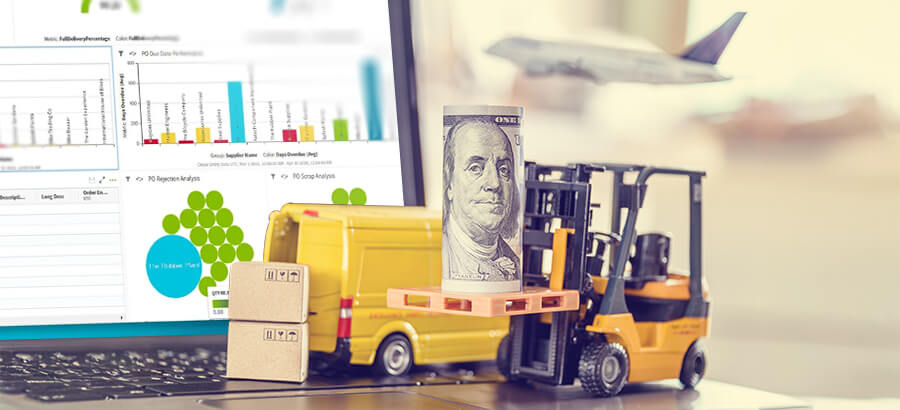Over the last decade, the role of the manufacturing and distribution CFO has undergone a profound shift. CFOs have traditionally been viewed as back office number crunchers and financial risk managers. With many organizations undergoing rapid change to adapt to supply chain challenges and opportunities, the modern CFO is expected to be a strategic partner to the C-suite table while developing and executing the company’s strategic agenda and helping effect change throughout the organization. The role of the CFO is being transformed by technological innovation and access to massive amounts of data, both inside and outside the organization.
The modern CFO
According to the 2021 SYSPRO CFO 4.0 survey, 57% of manufacturing CFOs agree that proficiency and knowledge to create an effective plan to operationalize and transition the business into a digitalized and automated manufacturer is the most critical factor globally. The modern CFO needs to understand digital technologies and their impact, and those who do so will become the key source for data-driven decision making and drive their organizations to be more agile, dynamic, and successful.
As strategic leaders, manufacturing and distribution CFOs need to increase the adoption of digital technology to improve operations, efficiency, customer experience, and control along the supply chain. An ERP solution which enables centralized data and visibility into the full operations of the business is a game changer for the CFO to gain sharper insights that drive both the company’s growth and bottom-line agenda. Here’s ERP ROI for the manufacturing and distribution CFO:
1. Managing cashflow and maximizing profitability
By acquiring and integrating more information, CFOs can help the business develop a more responsive and reliable supply chain. With ongoing disruptions CFOs for example need real-time visibility into production costs, raw material pricing, and shipping and transport fees along with insight and information surrounding their suppliers’ activities. This information allows you to steer your company through uncharted waters and manage cashflow and maximize profitability. An ERP system also ensures the accuracy of information which is crucial in cash management since anomalies and errors can be flagged up. ERP allows CFOs to identify potential efficiencies, enabling costs to be reduced across the organization.
2. Diversification of business operations
The SYSPRO CFO 4.0 study found the disruptions caused by the pandemic played a huge role in the diversification of manufacturing businesses. 65% of the CFO respondents surveyed revealed in order to thrive, they have shifted expenditure into new markets, product lines and technologies. The hard reality facing manufacturers is that unless they’re actively reinventing themselves and making a deliberate attempt to improve how they design, sell and customize products and services for customers they will be replaced by those that are. An ERP system gives the CFO intelligence and knowledge to drive real-time integration across systems, processes, platforms as they devise new products and services that scale at the same speed customers are changing.
3. Driving industry 4.0
The race to digitally transform business operations has created new goals and challenges for the CFO. Executives are under pressure to transform outdated systems and improve digital connectivity in a cost-effective manner. When asked about future areas of investment to ensure continued success, 56% of manufacturing and distribution CFOs from the survey indicated that they would be investing in warehouse automation, 37% of respondents confirmed that they would investigate migration to cloud-based services and 37% would be exploring SMART technologies including 3D printing, IoT, Machine Learning (ML) and Artificial Intelligence (AI). By fostering innovation and collaboration while also creating transparencies and breaking down silos among teams and departments, ERP solutions are an important digital stepping stone. Data enabled by an ERP system also gives the CFO information related to financial, technology and market analysis so they can drive digital transformation initiatives and assess digitization opportunity and risk.
4. Data-driven decision making and risk management
CFOs can use accurate real-time data to better understand their business operations, share this insight cross-functionally, and use it to drive strategic decision making and manage risks. The use of dashboards, KPIs, and other business metrics provides CFOs with visual windows into the data to transform businesses processes. Continual monitoring of these metrics provides the organization with a way to measure performance over time and can help identify trends and opportunities.
Ongoing supply chain disruptions have allowed manufacturing and distribution businesses to shift operations and adapt. Organizations are exploring new territories, expanding production lines and evolving business models. The CFO is an instrumental catalyst in these shifts and is evolving the face of manufacturing and distribution as we know it.






